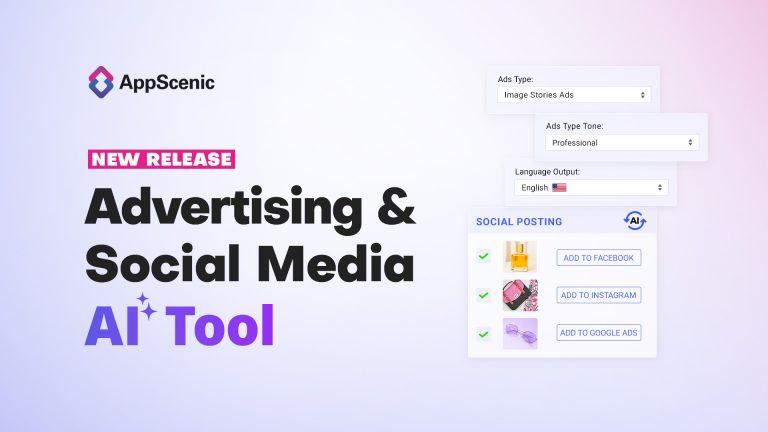Niche dropshipping stores often see a conversion rate up to 3 times higher than general stores. Quite a significant number for anyone venturing into the world of dropshipping, right?
In this next guide, we’ll explain why choosing general niches might not be your best bet as a dropshipping beginner. We’ll also explore a few effective alternatives, the power of being niche-specific, and even give you some scenarios where general stores make sense.
So, whether you’re just starting on this journey or considering a shift in strategy, this next guide is for you. Now, if you prefer to watch a video instead of reading, then just press play below.
Table of Contents
The challenges of general niches for beginners
First up, let’s talk competition. Imagine stepping into a market where you’re one of, let’s say, 10,000 general stores or even 100,000 stores. That’s not just a figure of speech. In major e-commerce platforms, general stores outnumber niche stores by a staggering margin, which means your competition is exponentially higher.
We know that launching a store that sells a bit of everything does sound appealing, but here’s the catch: you’re entering a market with countless others doing the same. And standing out in this crowd is far from easy, especially when you’re just starting out.

Now, let’s talk about advertising – a crucial piece of the dropshipping puzzle. When it comes to advertising, a general store’s approach can be as varied as its product range. Targeting the right audience becomes a maze, with beginners often seeing ad costs spiral without significant returns. In fact, niche stores report up to 50% more efficiency in ad spending compared to general stores.
Effectively marketing a wide array of products requires deep insights into multiple customer profiles, interests, and behaviors, and a high skill in managing advertising platforms. For beginners, mastering these complex advertising tasks, especially on platforms like Facebook or Google, can be very challenging.
And then, we also have customer loyalty. Loyal customers are the backbone of any successful store. Now, here’s the challenge – general stores typically see a repeat customer rate of only about 5%, while niche stores can experience rates as high as 20%.
Why, you ask? Well, the broad approach of general stores lacks the personal touch niche stores naturally have.
Now, what about all those success stories we hear of general stores? Yes, they do exist, but they often involve a huge investment in market research, advertising, and of course, a lot of experience – something most beginners don’t have.
So, you see, starting with a niche store can give you a more manageable, cost-effective, and rewarding entry into dropshipping.
Niche stores: the beginner-friendly choice
Let’s talk more about niche stores, and how beginners in dropshipping should choose this path if they want better chances of succeeding.
Now, when talking about advertising, niche stores have a clear lead. As you will only sell a specific product range, this means that your advertising becomes more direct, targeting only a specific audience. This clarity not only simplifies your marketing efforts but also boosts their effectiveness.
And yes, niche-based campaigns can have click-through rates as high as 3%, compared to the average 1% in more generalized markets.
Building your customer profile is also more straightforward for a niche store. Instead of casting a wide net and hoping for the best, you focus on a specific group of people, only learning about their needs and preferences. This leads to more effective and cost-efficient marketing strategies, tailored only for your audience.
And here’s another plus: Getting supplier approval. High-quality domestic suppliers often prefer partnering with niche stores, as this aligns better with their targeted distribution strategies. And such partnerships result in about 20% faster supply chain processes for niche stores, as reported by leading suppliers.
Now, what about building brand loyalty? In niche markets, customers are more likely to come back, thanks to the specialized nature of your store. This loyal customer base not only brings repeated sales but can also become an advocate for your brand.

How to find your dropshipping niche?
As we have multiple articles on this, we will keep it short here. Here’s what you need to know: always start with what your passion is or what are the latest trends in your area. You should also look for gaps in the market so that you can provide unique products. Do thorough research, and check online forums, social media groups, and customer reviews – all these can help you understand the needs of your potential market.
Read more on how to find the best dropshipping niche for your business.
We also have a whole series on the blog called Top Niches Series, where we explore the best product categories you can dropship, why you should dropship a specific niche, and what types of products you can start selling, among others.
Now, of course, there are times when a general store could be successful, and that’s what we will be explaining next.
So, when does a general store make sense?
While it’s true that niche stores are often the best way for beginners, we can’t overlook the potential of general stores under certain conditions.
Take, for instance, stores like ‘Best Choice Products‘ Starting with a diverse range of products, they tapped into the advantage of selling to a wider audience. Their success wasn’t just luck; it was backed by robust market research and an adaptable strategy. These general stores, though few, managed to build their niche in ‘generalness,’ becoming a one-stop shop for varied needs.
So, when can a general store model succeed? Well, when you have broad market knowledge and access to a varied range of products. Also, this type of store can work particularly well if you can identify cross-selling opportunities and appeal to varied customer interests.
But here are a few crucial aspects – experience and resources. To manage a general store you need to have a profound understanding of different market segments and the ability to mix them up.
For example, when running a general store, you may need to invest significantly more in market analysis, price monitoring, legal, compliance and customer support. Compared to niche stores, this can increase operational costs by an average of 30%.
But, it’s important to remember that for beginners, these can all be quite challenging. The in-depth knowledge, the capital needed for a varied product range, and advanced marketing skills or tools – all these are often out of reach for someone just starting their journey into the dropshipping world.
So, while general stores have their place, for most beginners, niche dropshipping can lead to a more accessible and manageable start.
Now, when do you know if your dropshipping choice store is too broad or too niched down?

When is a niche considered too broad or too niched down?
This is another important question and understanding this can be crucial, especially for beginners.
Let’s take the pet industry as an example. A store selling products for all types of pets might seem like a niche, but it’s actually quite broad. You’ve got dogs, cats, birds, and more – each with unique needs. That’s almost like running a mini general store. If you refine that focus to just dog houses and dog playgrounds, you’ve got yourself a true niche.
In a well-defined niche store, you might offer a few main product types, let’s say 1 to 5, that are closely related. For example, various dog houses are suited for different dog sizes and materials, along with complementary products like cages.
And here’s a pro tip: You can expand your niche store with tier 2 products: these are items that complement your main products. Think dog toys or leashes that could be perfect for upselling or cross-selling. This strategy not only increases your average order value but also enhances the shopping experience for your customers.
So, how do you know if you’re too niched down? If your store focuses on just one specific product with limited appeal or customer base, consider broadening this slightly. You will want to ensure there’s a big enough market for your products while maintaining that niche feeling.
The idea is to find that sweet spot: a niche that’s specific enough to reduce competition and build a loyal customer base, yet broad enough to have a substantial market and growth potential. Of course, as your store grows, you can gradually expand your product range. For example, you can branch out from dog products to include cat products.
Now that we’ve settled this, let’s go back to why starting a niche store could be the best bet if you’re a beginner in dropshipping?

Why beginners should opt for niche stores?
Think of managing a niche store as steering a light boat, compared to the challenging task of captaining a massive cruise ship that a general store represents. Niche stores offer a more manageable approach, especially for those just starting their first e-commerce store. The specific product range simplifies operations, from inventory management to marketing strategies.
And the learning curve is much more steady. In niche dropshipping, you get to deeply understand your market and customer needs. Studies show that niche store owners often have a clearer grasp of market dynamics within their first six months, compared to the broader approach of general stores.
And when it comes to early successes and growth, niche stores lead the way. The targeted approach allows for quicker traction in the market. This means that you can potentially see profitable returns and grow your customer base much sooner. In fact, niche stores have reported up to 40% quicker growth in customer base in their initial year, compared to their general store counterparts.
So, for beginners, niche dropshipping is less overwhelming, more structured, and offers a clearer path to early success. It’s about starting small, understanding deeply, and growing steadily.
Final Thoughts
Now that we’ve explored the pros of niche stores, let’s recap our findings. Niche stores offer a focused, manageable path for beginners, easing the advertising and customer relationship challenges. In contrast, general stores, while successful under certain conditions, offer complexities that can overwhelm newcomers.
To all the aspiring dropshippers out there, remember: starting your journey with a niche store not only simplifies your initial steps but also paves the way for a deeper understanding of your market and potentially a quicker success.
Our advice? Start small, focus on your niche, and grow your store strategically. With dedication and patience, you can navigate the world of dropshipping and create your own path to success.
Want to learn dropshipping the right way? Then find out why our course is a game changer.











